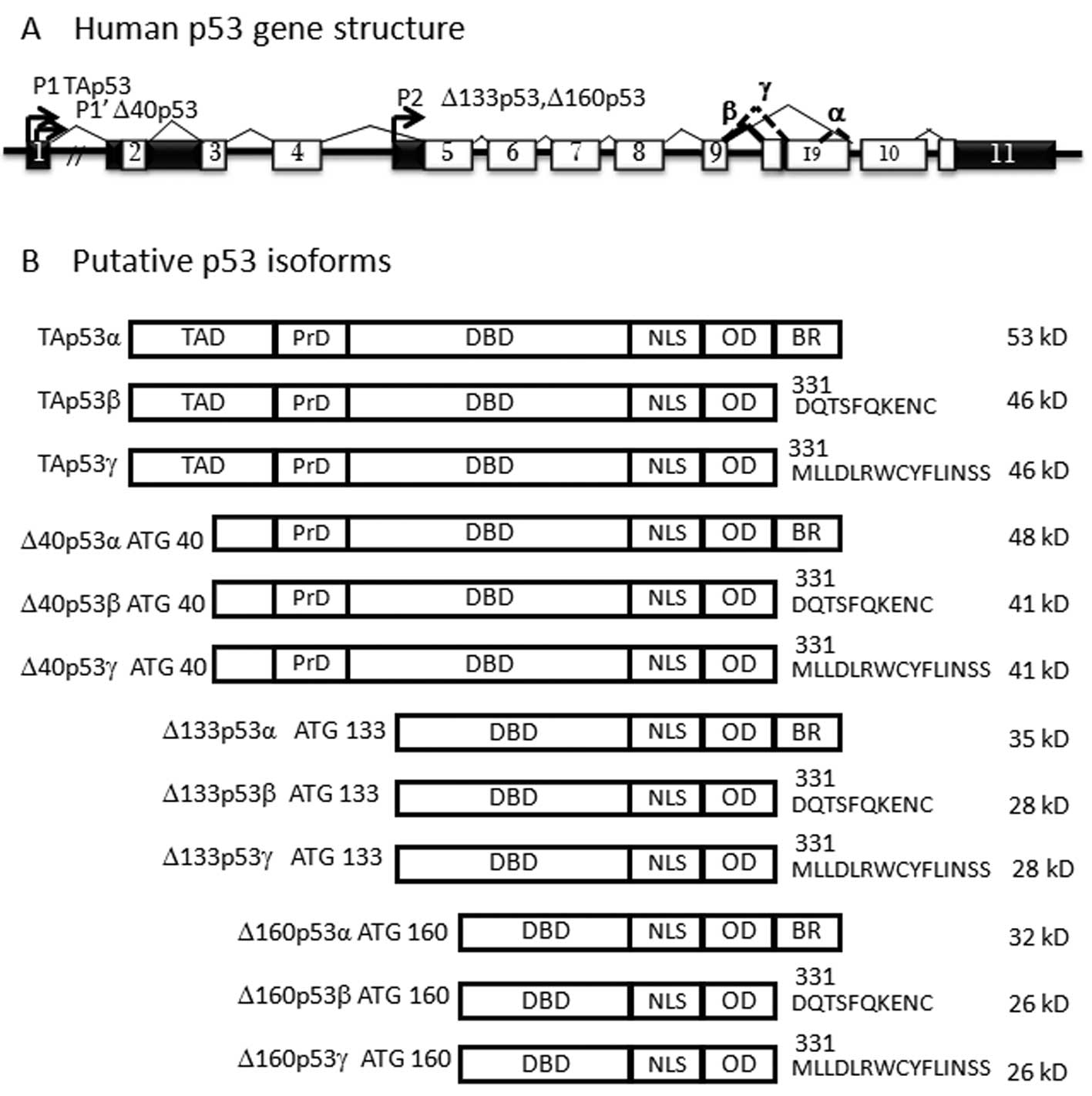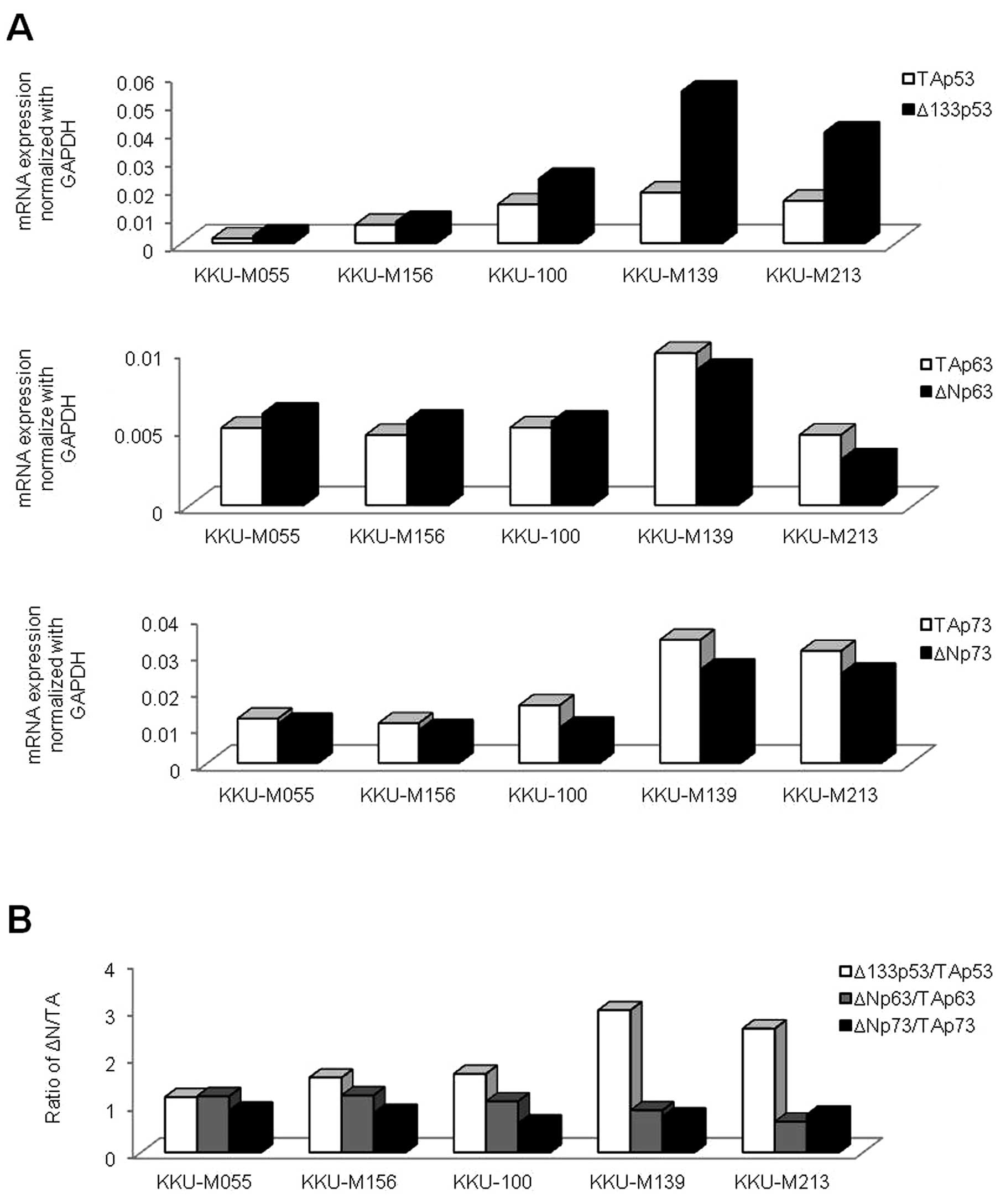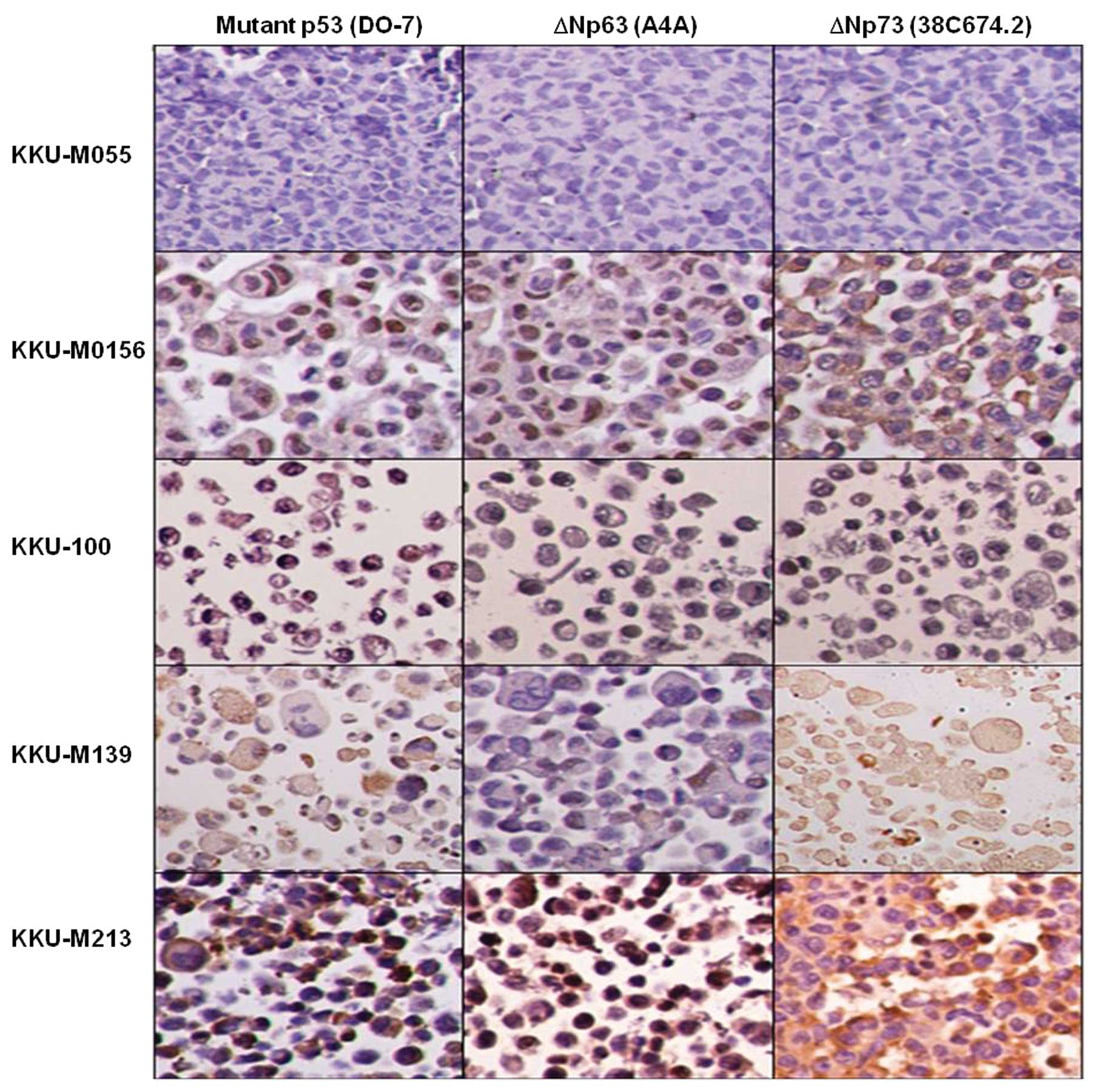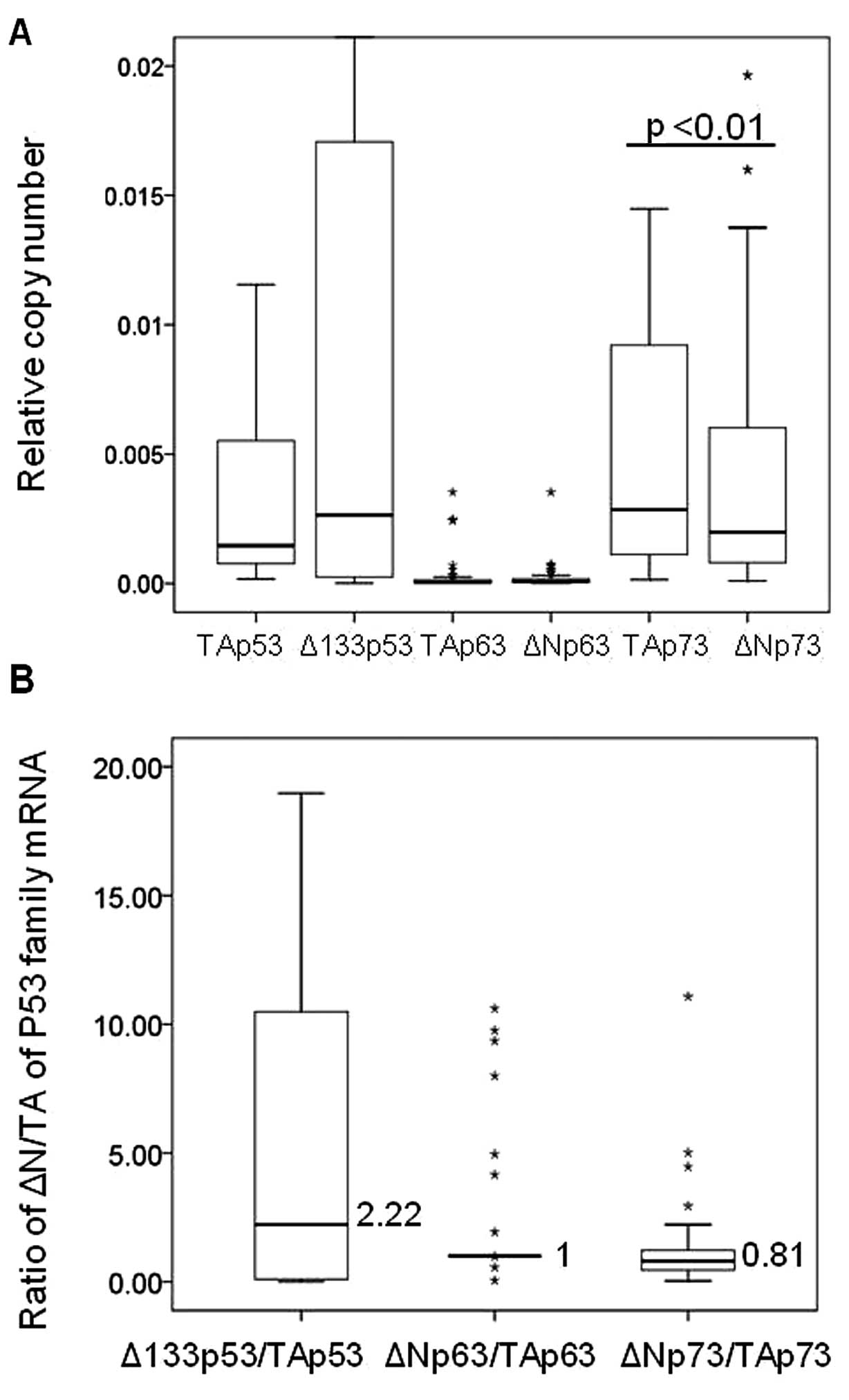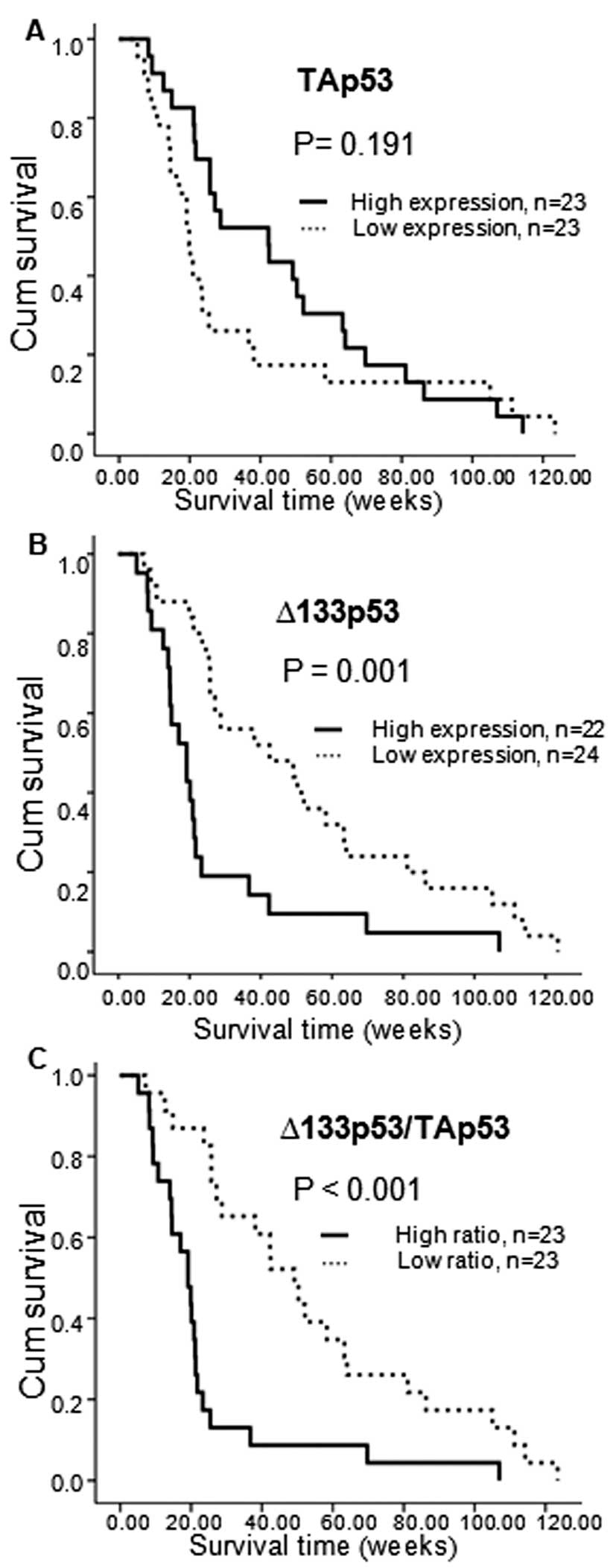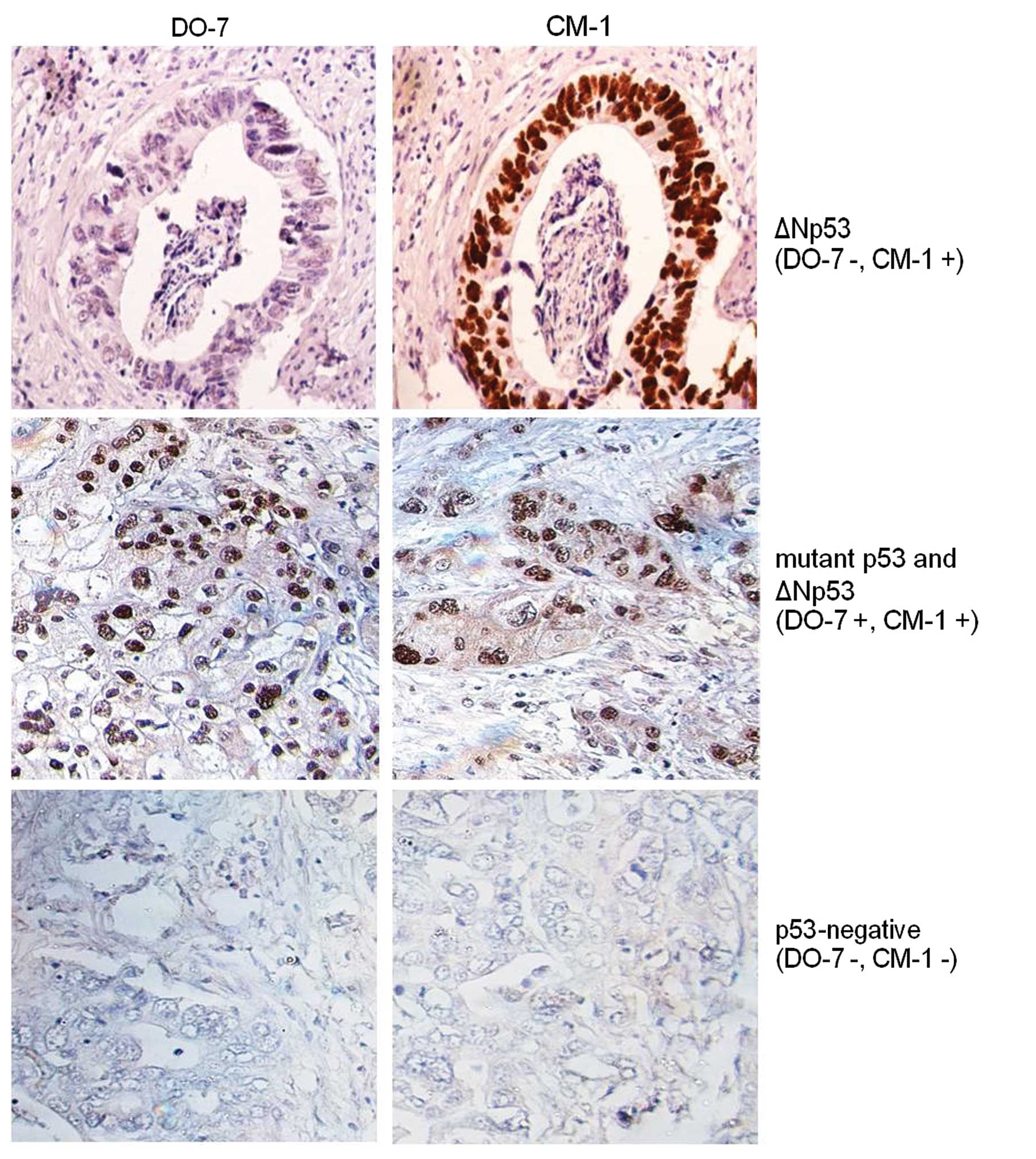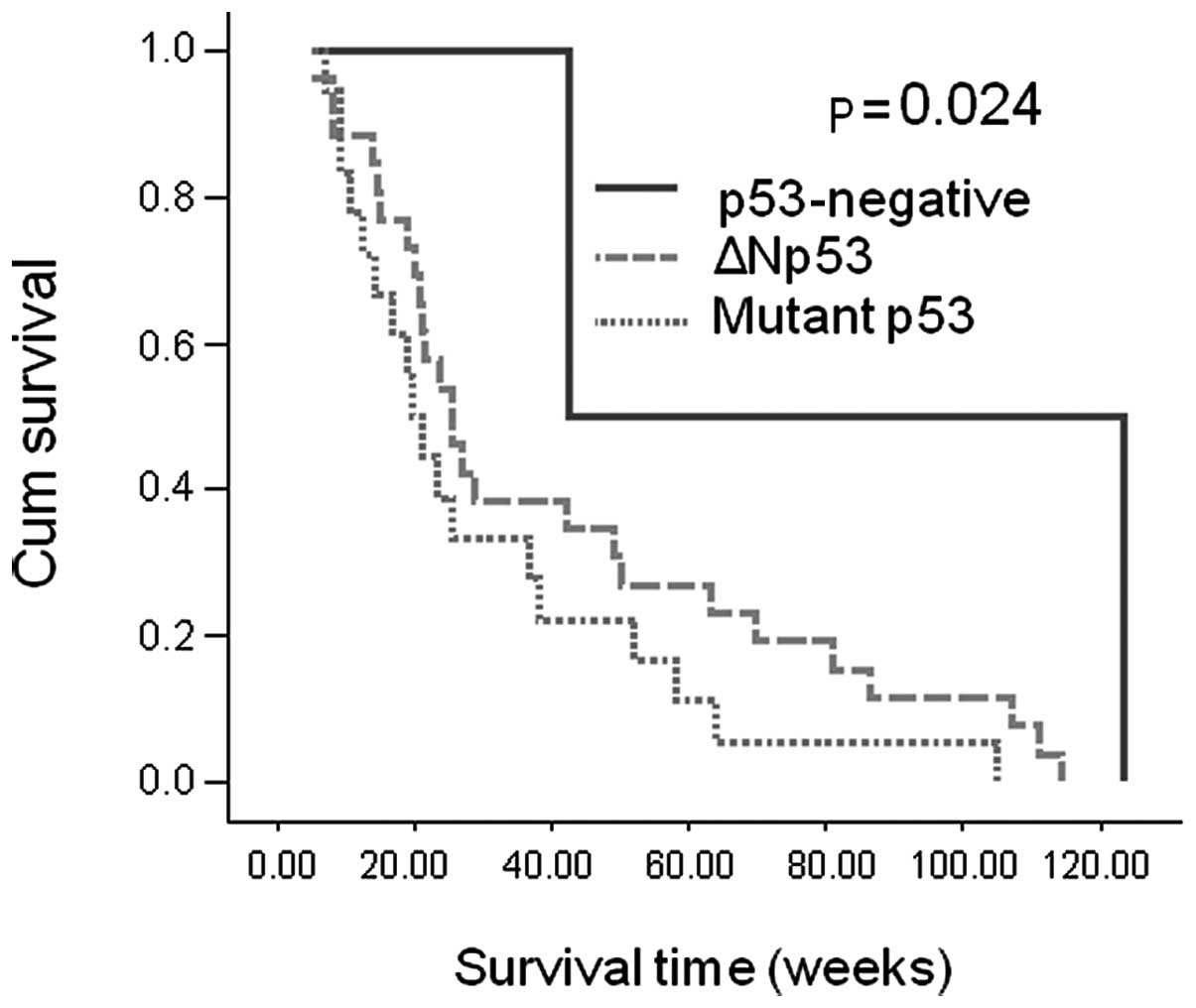|
1
|
Sripa B and Pairojkul C:
Cholangiocarcinoma: lessons from Thailand. Curr Opin Gastroenterol.
24:349–356. 2008. View Article : Google Scholar : PubMed/NCBI
|
|
2
|
Blechacz B and Gores GJ:
Cholangiocarcinoma: advances in pathogenesis, diagnosis, and
treatment. Hepatology. 48:308–321. 2008. View Article : Google Scholar : PubMed/NCBI
|
|
3
|
Stiewe T: The p53 family in
differentiation and tumorigenesis. Nat Rev Cancer. 7:165–168. 2007.
View Article : Google Scholar
|
|
4
|
Murray-Zmijewski F, Lane DP and Bourdon
JC: p53/p63/p73 isoforms: an orchestra of isoforms to harmonise
cell differentiation and response to stress. Cell Death Differ.
13:962–972. 2006. View Article : Google Scholar : PubMed/NCBI
|
|
5
|
Mills AA, Zheng B, Wang XJ, Vogel H, Roop
DR and Bradley A: p63 is a p53 homologue required for limb and
epidermal morpho-genesis. Nature. 398:708–713. 1999. View Article : Google Scholar : PubMed/NCBI
|
|
6
|
Bourdon JC: p53 and its isoforms in
cancer. Br J Cancer. 97:277–282. 2007. View Article : Google Scholar : PubMed/NCBI
|
|
7
|
Bourdon JC, Fernandes K, Murray-Zmijewski
F, et al: p53 isoforms can regulate p53 transcriptional activity.
Genes Dev. 19:2122–2137. 2005. View Article : Google Scholar : PubMed/NCBI
|
|
8
|
Marcel V, Perrier S, Aoubala M, et al:
Δ160p53 is a novel N-terminal p53 isoform encoded by Δ133p53
transcript. FEBS Lett. 584:4463–4468. 2010.
|
|
9
|
Helton ES, Zhu J and Chen X: The unique
NH2-terminally deleted (DeltaN) residues, the PXXP motif, and the
PPXY motif are required for the transcriptional activity of the
DeltaN variant of p63. J Biol Chem. 281:2533–2542. 2006. View Article : Google Scholar : PubMed/NCBI
|
|
10
|
Marchini S, Marabese M, Marrazzo E, et al:
DeltaNp63 expression is associated with poor survival in ovarian
cancer. Ann Oncol. 19:501–507. 2008. View Article : Google Scholar : PubMed/NCBI
|
|
11
|
Liu SS, Chan KY, Cheung AN, Liao XY, Leung
TW and Ngan HY: Expression of deltaNp73 and TAp73alpha
independently associated with radiosensitivities and prognoses in
cervical squamous cell carcinoma. Clin Cancer Res. 12:3922–3927.
2006. View Article : Google Scholar : PubMed/NCBI
|
|
12
|
Marabese M, Marchini S, Marrazzo E, et al:
Expression levels of p53 and p73 isoforms in stage I and stage III
ovarian cancer. Eur J Cancer. 44:131–141. 2008. View Article : Google Scholar : PubMed/NCBI
|
|
13
|
Müller M, Schilling T, Sayan AE, et al:
TAp73/Delta Np73 influences apoptotic response, chemosensitivity
and prognosis in hepatocellular carcinoma. Cell Death Differ.
12:1564–1577. 2005.PubMed/NCBI
|
|
14
|
Soldevilla B, Díaz R, Silva J, et al:
Prognostic impact of ΔTAp73 isoform levels and their target genes
in colon cancer patients. Clin Cancer Res. 17:6029–6039. 2011.
|
|
15
|
Limpaiboon T, Sripa B, Wongkham S,
Bhudhisawasdi V, Chau-in S and Teerajetgul Y: Anti-p53 antibodies
and p53 protein expression in cholangiocarcinoma.
Hepatogastroenterology. 51:25–28. 2004.PubMed/NCBI
|
|
16
|
Yang B, House MG, Guo M, Herman JG and
Clark DP: Promoter methylation profiles of tumor suppressor genes
in intrahepatic and extrahepatic cholangiocarcinoma. Mod Pathol.
18:412–420. 2005. View Article : Google Scholar : PubMed/NCBI
|
|
17
|
Lin Z, Nan Y, Zhang X, Zhao Y, Kim C and
Kim I: Reverse transcription-polymerase chain reaction and western
blotting analysis for detection of p63 isoforms in uterine cervical
cancers. Int J Gynecol Cancer. 16:1643–1647. 2006. View Article : Google Scholar
|
|
18
|
Furubo S, Harada K, Shimonishi T,
Katayanagi K, Tsui W and Nakanuma Y: Protein expression and genetic
alterations of p53 and ras in intrahepatic cholangiocarcinoma.
Histopathology. 35:230–240. 1999. View Article : Google Scholar : PubMed/NCBI
|
|
19
|
Song W, Huo SW, Lü JJ, et al: Expression
of p53 isoforms in renal cell carcinoma. Chin Med J (Engl).
122:921–926. 2009.PubMed/NCBI
|
|
20
|
Fujita K, Mondal AM, Horikawa I, et al:
p53 isoforms Delta133p53 and p53beta are endogenous regulators of
replicative cellular senescence. Nat Cell Biol. 11:1135–1142. 2009.
View Article : Google Scholar : PubMed/NCBI
|
|
21
|
Conforti F, Yang AL, Agostini M, et al:
Relative expression of TAp73 and ΔNp73 isoforms. Aging (Albany,
NY). 4:202–205. 2012.
|















